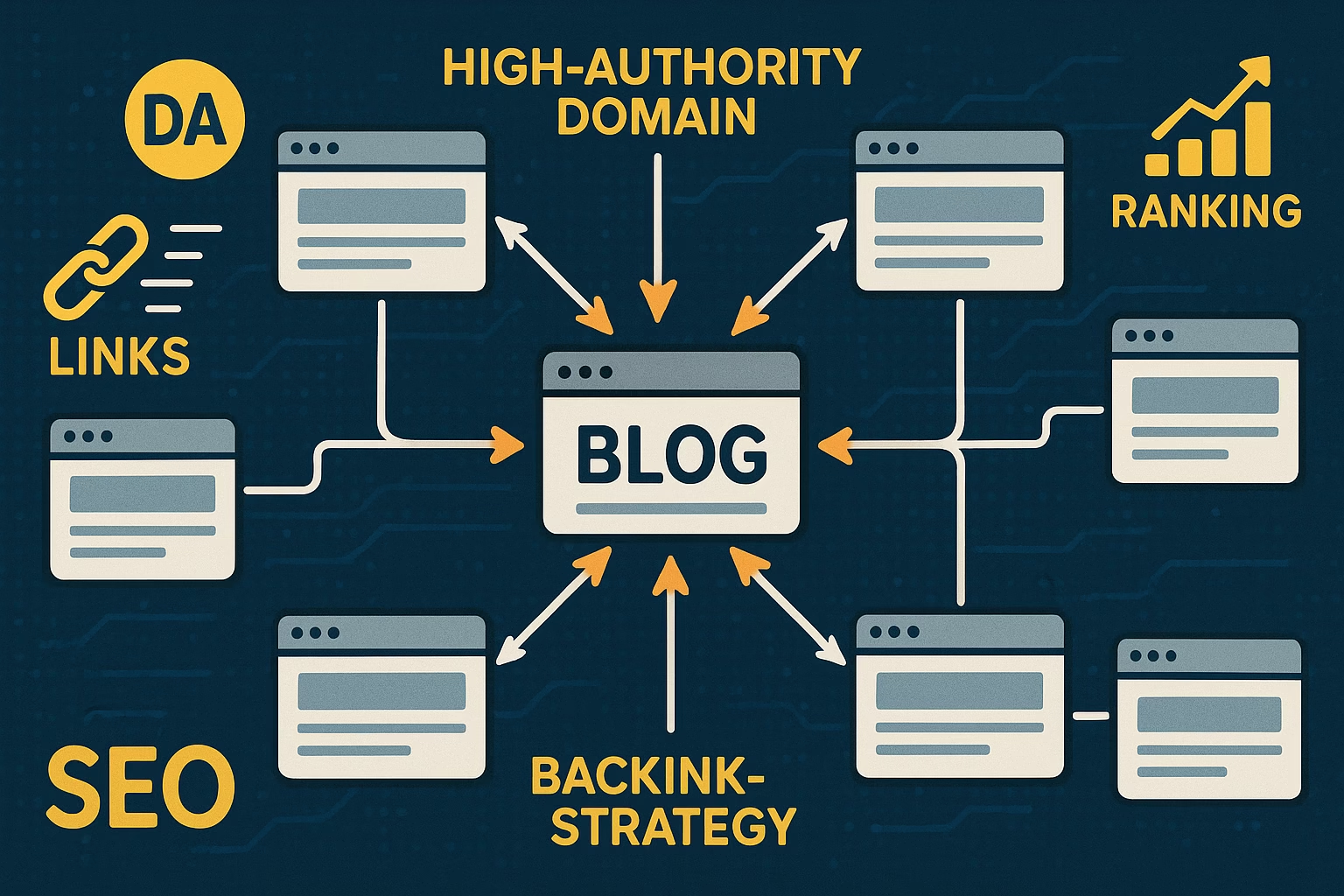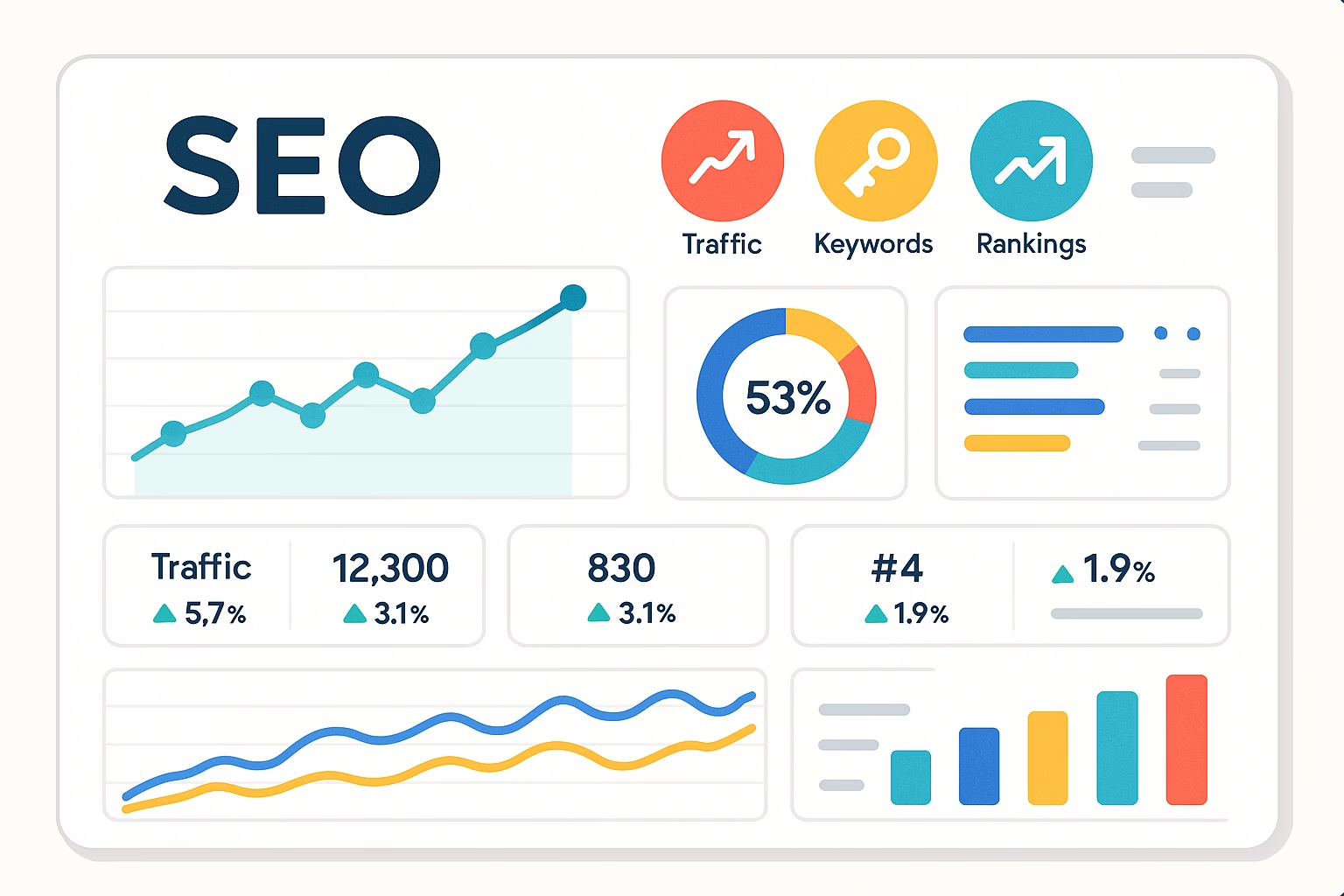What is SEO? A Beginner’s Guide to Search Engine Optimization
Introduction
Search Engine Optimization, or SEO, is one of the most powerful tools in digital marketing. Whether you’re running a personal blog or a full-scale e-commerce site, understanding SEO is key to bringing more people to your website. In this beginner-friendly guide, we’ll walk you through what SEO means, how it works, and why it matters more than ever in 2025.
What Does SEO Stand For?
SEO stands for Search Engine Optimization. It’s the practice of optimizing your website and content so that search engines like Google can find, understand, and rank it higher in search results. The better your SEO, the more organic (free) traffic your site gets from users typing relevant queries into search engines.
Why is SEO Important in 2025?
With AI-generated content and millions of new websites appearing every year, standing out in search results is tough. SEO ensures that your site stays visible and competitive. In fact, most users never scroll past the first page of search results, making high rankings essential.
SEO is also important for:
- Credibility: Users trust top-ranking websites more.
- User Experience: Good SEO practices often improve website usability.
- Long-Term Traffic: Unlike ads, organic traffic from SEO can keep coming in for years.
How Do Search Engines Work?
Search engines use bots (called crawlers or spiders) to scan the web. These bots crawl websites, index their content, and rank them based on hundreds of factors including relevance, quality, speed, and authority.
Here’s the process:
- Crawling: Bots scan your web pages.
- Indexing: The content is stored in the search engine’s database.
- Ranking: Algorithms determine the page order for a user’s search query.
To ensure your content gets indexed and ranked, it’s important to follow basic SEO practices such as proper on-page SEO and submitting your site to tools like Google Search Console.
Types of SEO
SEO isn’t just one thing — it’s made up of several categories that work together to improve your visibility online:
1. On-Page SEO
This includes all the things you do on your website to optimize individual pages. It involves:
- Using keywords in the title, headers, and throughout the content
- Writing clear and concise meta descriptions
- Optimizing images with alt text
- Internal linking to relevant posts, such as our guide to writing SEO-friendly blog posts
2. Off-Page SEO
This refers to actions taken outside your own site to impact your rankings within search engine results pages (SERPs). The most well-known off-page SEO method is backlinking, where other reputable websites link to your content.
3. Technical SEO
Technical SEO involves optimizing your website’s backend structure so it’s easier for search engines to crawl and index your site. This includes improving page speed, ensuring mobile-friendliness, and using structured data.
4. Local SEO
If you run a local business, this is crucial. Local SEO focuses on optimizing your site for location-based searches, like “best bakery near me.” Google My Business, reviews, and local citations play a big role here.
Essential SEO Terminology
If you’re new to SEO, these terms will come up a lot. Let’s simplify them:
- Keyword: The words or phrases users type into search engines.
- Backlink: A link from another website to yours.
- Alt Text: Text that describes images for search engines and users with disabilities.
- Meta Description: A brief summary that appears under your title in search results.
- Anchor Text: The clickable text in a hyperlink.
Getting Started with SEO
Starting your SEO journey doesn’t have to be overwhelming. Here are five simple steps to begin:
- Do basic keyword research using free tools like Ubersuggest or Google Keyword Planner
- Optimize your title, meta description, and headings
- Write valuable, user-friendly content
- Add internal links to other relevant pages
- Track your traffic with Google Search Console and Analytics
Conclusion
SEO is not a one-time task—it’s an ongoing process that can make or break your website’s performance. By learning the basics, implementing the right strategies, and staying updated with changes in search engine algorithms, you’ll be on your way to building a successful, search-visible blog or website in 2025 and beyond.









